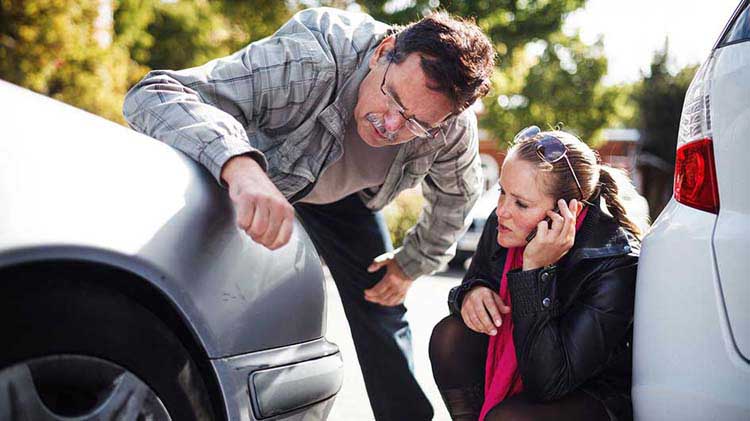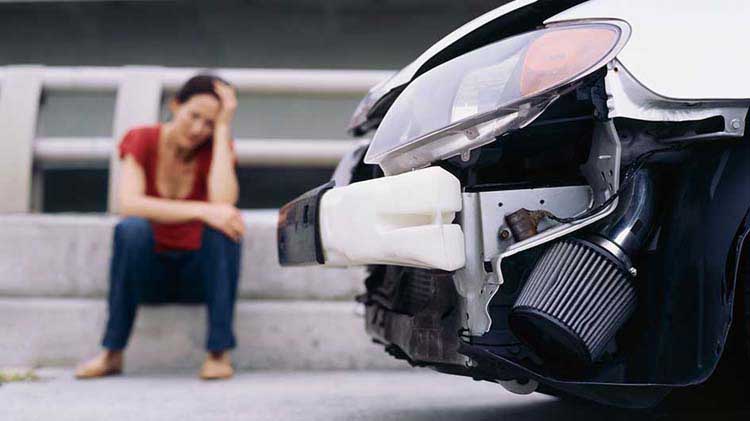How is car insurance calculated?
Learn how car insurance is calculated, what factors affect your rates and what you can do to help lower costs.
We’ll start by discussing how car insurance rates are calculated. And then we’ll take a closer look at why factors like your age and location can influence the price you pay.
How do car insurance companies determine rates?
Car insurance rates are generally determined by assessing the amount of risk being insured by the policy. Risk is calculated by using the probability of a particular event occurring and the potential impact of that event.
- Probability – This refers to the likelihood of a specific event happening based on historical data.
For example: to determine the probability of a car accident, factors like your age, location and your driving behavior could be used to estimate the likelihood of being in an accident.
- Impact – This refers to the consequences or severity of the event if it were to occur.
For example: the severity of a car accident could be measured in terms of property damage, personal injuries and financial loss.
By considering the probability and impact of certain events, car insurance companies can assess the amount of risk being insured and adjust their rates accordingly. Typically, higher risk = higher rates, and lower risk = lower rates.
Get an auto insurance quote
Want to protect your car?
Factors that affect car insurance rates
Here are some common factors used by many companies as they tend to be reliable indicators of risk:
Age
Your age is important because it helps companies estimate how many accidents you could potentially have due to the strong correlation between driving age and accidents.
You may have lower rates when you’re between the ages of 25 and 65 because drivers in that age range tend to have fewer accidents overall. On the other hand, you might have higher rates when you’re under 25 or over 65 because of the increased likelihood of having accidents and sustaining injuries.
Location
Where you live can influence how often you’ll be exposed to potential risks such as accidents, theft and vandalism. The more risks you could be exposed to, the higher your rates may be.
For example, your rates will typically be higher if you live in an area with heavy traffic and potentially more risks vs. an area with less traffic and fewer risks.
Driving record
Your driving record is a significant factor because it can indicate how likely you are to engage in risky driving behavior.
For instance, having several speeding tickets on your record will likely result in higher rates as it indicates there’s a higher amount of risk to insure. On the other hand, having a clean driving record can help keep your rates down because it demonstrates that you’re a responsible driver with safe driving habits.
Claims history
Your claims history is a notable factor because it can be a good indicator of your likelihood of having claims in the future.
The more claims you have on your record, the higher your rates could be. Which means the fewer claims you have on your record, the better chance you’ll have of keeping your rates down.
How often you drive
The amount of driving you do is a key factor because it affects your likelihood of being involved in an accident.
Driving less frequently means you’re less likely to be exposed to risk, so your rates will be lower if you drive a few miles per week compared to if you drive 2 hours a day, 5 days a week.
Credit score
Most states allow insurers to review credit information. Your credit characteristics are relevant because it can impact your credit-based insurance score, which is one of the factors many companies use when assessing your risk. A low credit-based insurance score will often result in higher rates because it correlates to a higher likelihood of losses.
Vehicle
Your vehicle will determine the estimated cost of claims repair or replacement. Generally, the higher the cost, the higher your rates will be as a result.
Some features such as anti-lock brakes and anti-theft devices may help reduce your rates; however, it’s important to note that others, such as advanced safety features with sensors for crash avoidance, might increase your rates since they rely on technology that’s often more expensive to repair or replace than their traditional counterparts.
Your policy coverages, limits and deductibles
These last three factors can give you more control over your rates because the impact they have depends on the amounts you choose. Most states require a minimum amount of coverage, but beyond that, it’s up to you to select the coverages needed to help protect your asset(s) and exposure.
- Coverage – This refers to the types of losses that are included in your insurance policy.
For example: collision coverage helps pay to repair or replace your vehicle if it collides with another vehicle or object. Whereas comprehensive coverage helps pay to repair or replace your vehicle if it's damaged by something other than a collision, such as theft, fire or vandalism.
- Limit – This is the maximum amount of money an insurance policy will pay for the covered losses or damages.
- Deductible – This is the amount of money you pay out of pocket before an insurance company helps cover costs, up to the coverage limit.
How can I lower my car insurance rates?
Now that we’ve discussed the main factors that can affect your amount of risk, let’s explore some ways you may be able to help lower your car insurance rates:
- Maintain a good driving record. Having a good driving record is a way to help lower your rates. If you’re a good driver, you could save up to 30%footnote 1 using the Drive Safe & Save® appfootnote 2.
- Practice safe driving habits. There are plenty of reasons to drive safely, but saving money is an especially good one. The Steer Clear® appfootnote 3 offers drivers under 25 a way to earn savings on auto insurance and improve their driving skills.
- Take advantage of discounts. Find out if you’re eligible for one of the many discounts State Farm® offers.
- Maintain good credit. You can help keep your rates lower by maintaining good credit characteristics and being financially responsible.
- Consider bundling.footnote 4 Learn about bundling your insurance policies, such as your car, home and life insurance. By doing so, you may qualify for some savings.
- Think about adjusting your policy coverages, limits or deductibles. Opting for a higher deductible can help reduce your rates, but keep in mind you’ll pay more out-of-pocket in the event of a loss.
- Consider dropping coverages you may no longer need. If you have an older vehicle, you may choose to look at opting out of things like comprehensive coverage, collision coverage, roadside assistance or rental reimbursement.
Want more information? Consider talking to an agent!
Your local State Farm agent can help explain the different types of coverages and options available to you and help you create a personalized plan that makes the most sense for your situation.
Now that you have learned about some of the factors that affect car insurance rates, you may want to learn more about information to include on auto insurance applications, the cost of car insurance fraud or what to do after a hit and run.




